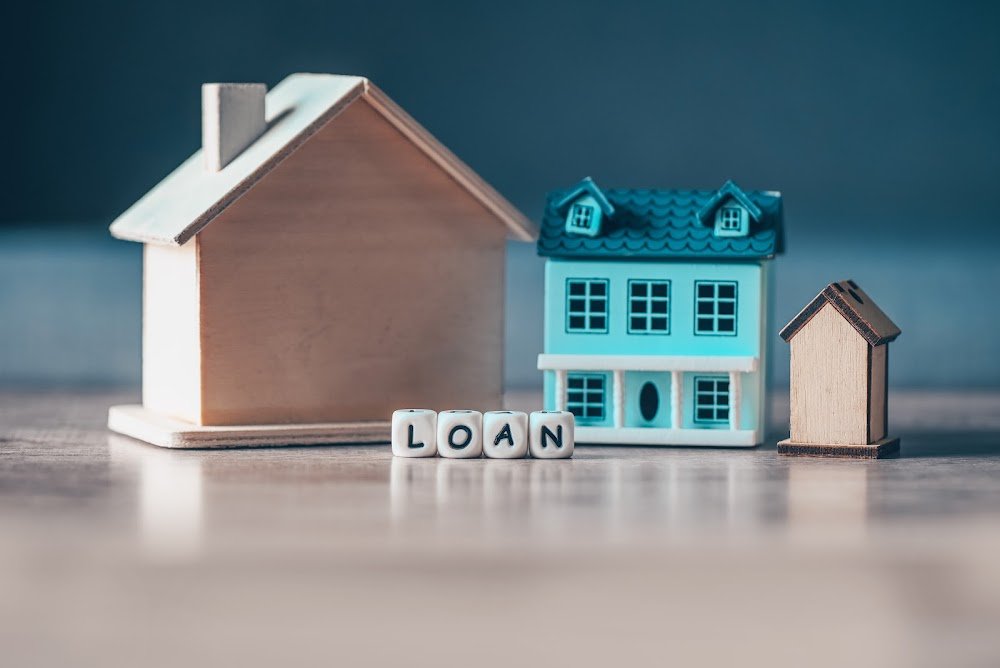Home equity loans allow homeowners to tap into the value of their homes and use that money for various purposes such as home renovations, paying off debt, or funding other personal needs. These loans are a great way to access large sums of money at relatively low-interest rates because they are secured against the value of the property. However, getting a home equity loan on a mobile home can be more complicated than obtaining one on a traditional brick-and-mortar house. This blog will explore who offers home equity loans on mobile homes, the eligibility requirements, and other factors you need to know if you’re considering using your mobile home’s equity.
What Is a Home Equity Loan?
Before diving into the specifics of mobile homes, let’s briefly review what a home equity loan is and how it works. A home equity loan, often called a second mortgage, allows homeowners to borrow money using the equity in their home as collateral. The amount you can borrow is based on the difference between the home’s market value and any outstanding mortgages or liens on the property.
For example, if your mobile home is worth $100,000 and you owe $40,000 on your mortgage, you may be able to borrow up to $60,000 in a home equity loan, depending on the lender’s policies.
Mobile Homes and Home Equity Loans: Key Differences
Mobile homes are considered personal property rather than real estate in some situations. In traditional home equity loans, lenders look for collateral in the form of real property—land and a permanent structure. Mobile homes, which may be classified as personal property or real estate, don’t always meet this requirement. This distinction often makes it more difficult to qualify for a home equity loan on a mobile home compared to a site-built house.
However, this doesn’t mean it’s impossible. Many lenders offer loans specifically for mobile homes, but they tend to have different criteria and processes compared to traditional home equity loans. In general, there are two scenarios when it comes to mobile homes and home equity loans:
- Mobile Homes Classified as Real Estate: If your mobile home is permanently affixed to land and you own both the home and the land it sits on, lenders may be more willing to treat your property like real estate. This makes it easier to qualify for a traditional home equity loan.
- Mobile Homes Not Classified as Real Estate: If your mobile home is not attached to land or it is considered personal property, securing a home equity loan may be more difficult. However, there are still lenders that offer loans to people in this situation, but they may come with higher interest rates or stricter requirements.
Who Offers Home Equity Loans on Mobile Homes?
Although mobile homes face some challenges when it comes to qualifying for a home equity loan, there are still many financial institutions that offer them. Here’s a breakdown of where you can apply for a home equity loan on a mobile home:
1. Traditional Banks and Credit Unions
Some major banks and credit unions do offer home equity loans on mobile homes, but they usually have stricter requirements. These institutions will typically want to see that the mobile home is permanently affixed to land and has been classified as real estate. Banks and credit unions usually have competitive interest rates, but they may be more selective about the types of properties they will accept as collateral.
Pros:
- Competitive interest rates
- Strong reputation and customer service
Cons:
- Stricter eligibility requirements
- May not accept mobile homes that aren’t considered real estate
2. Specialized Lenders
Some lenders specialize in loans for mobile homes and may have more flexible terms than traditional banks. These lenders typically focus on the unique needs of mobile homeowners and are often more willing to provide financing for properties that are classified as personal property or mobile homes that aren’t affixed to land.
Pros:
- More flexible lending criteria
- Specializes in mobile home loans
Cons:
- May have higher interest rates than traditional lenders
- Fees and terms may vary widely from lender to lender
3. Online Lenders
Online lenders have become an increasingly popular option for homeowners looking for a home equity loan. Many of these lenders are more willing to accept mobile homes as collateral and may offer loans to individuals whose homes are not classified as real estate. They often have quicker application processes and may offer more flexibility in terms of loan amounts and repayment options.
Pros:
- Fast and convenient application process
- Potentially more flexible loan terms
Cons:
- Interest rates may be higher
- Limited in-person customer service
4. Government Programs
There are also government-backed programs for mobile homeowners looking for loans, such as those offered by the Federal Housing Administration (FHA). These programs may help individuals who own mobile homes but have limited access to traditional lending options. FHA loans, for example, can help lower-income homeowners with less-than-perfect credit qualify for financing.
Pros:
- Government-backed programs often have lower interest rates
- More accessible for people with poor credit histories
Cons:
- May require additional paperwork
- Eligibility for these programs can be restrictive
5. Home Equity Line of Credit (HELOC)
If you’re unable to qualify for a home equity loan, you might want to consider a home equity line of credit (HELOC). A HELOC works similarly to a credit card, allowing you to borrow against your home’s equity as needed up to a set limit. If your mobile home qualifies, this could be a good alternative for homeowners who want flexible access to cash.
Pros:
- Flexible borrowing options
- Interest rates may be lower than unsecured loans
Cons:
- Interest rates may fluctuate
- Not all lenders accept mobile homes as collateral
Qualifying for a Home Equity Loan on a Mobile Home
To qualify for a home equity loan on a mobile home, you’ll need to meet several requirements. Here are the primary factors that lenders typically look at when considering your application:
1. Equity in the Mobile Home
As with any home equity loan, lenders will want to know how much equity you have in the property. You need to owe less on your mortgage than the current value of your mobile home. Most lenders will only let you borrow a certain percentage of the home’s value, typically around 80-85%. So, if your mobile home is worth $50,000 and you owe $20,000, you might qualify to borrow up to $30,000.
2. Property Classification
One of the most significant hurdles for mobile homeowners is the classification of the property. If your mobile home is permanently affixed to land and you own both the home and the land, it’s more likely that you’ll be eligible for a home equity loan. If your mobile home is not affixed to land or is classified as personal property, lenders may be less willing to offer a loan.
3. Credit Score
Just like with any other loan, your credit score plays an important role in determining your eligibility. Lenders want to know that you have a history of repaying debts on time, and a higher credit score often leads to better loan terms and lower interest rates.
4. Income and Debt-to-Income Ratio
Lenders will look at your income and debt-to-income (DTI) ratio to ensure you can afford the loan. Your DTI ratio is the percentage of your income that goes toward paying off debt. Most lenders prefer a DTI ratio below 43%, though some may accept a higher percentage depending on the circumstances.
5. Location and Condition of the Mobile Home
The location and condition of your mobile home will also affect your ability to qualify. Lenders may be more likely to approve loans for mobile homes in well-established, well-maintained communities rather than in more rural or mobile home park areas. They will also want to know that your mobile home is in good condition, as a deteriorating property will reduce the loan’s value.
Conclusion
Securing a home equity loan on a mobile home is possible, but it can be more challenging than getting one for a traditional home. It’s important to understand the distinctions between personal property and real estate when it comes to mobile homes. Several lenders, including traditional banks, specialized mobile home lenders, online lenders, and even government programs, offer home equity loans on mobile homes, though the terms and requirements can vary. By focusing on equity, property classification, credit score, and income, you can increase your chances of obtaining a home equity loan on your mobile home.
Before moving forward, it’s essential to shop around, compare lenders, and make sure you understand all the fees and terms of any loan you’re considering. With the right preparation, a home equity loan on your mobile home can provide you with the funds you need for a variety of personal and financial goals.




